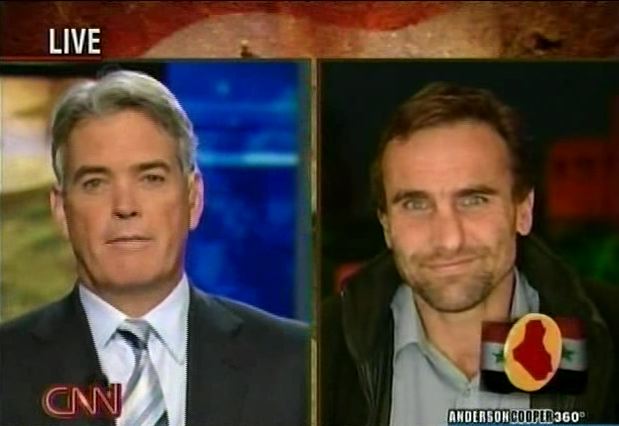AC: "The U.S. is not achieving victory right now."

Click photo to play
Length: 3:35
JOHN ROBERTS: All of this is happening in a vastly different political climate than a few years ago here in the United States. There is also a climate shift under way in the region, with Iran's President Ahmadinejad reportedly inviting Iraq's president for a sit-down in Tehran to talk about the violence and how to end it.
Meantime, Iraq shows little sign of improvement -- five dozen bullet-riddled bodies, one IED, and a mortar attack today. And that's in Baghdad alone.
As always, CNN's Michael Ware is on the ground there, and joins us now.
Michael, Henry Kissinger says that military victory in Iraq is not possible. He also adds that, if the U.S. were to pull out now, it would be disastrous.
How does that square with what you're seeing and hearing on the ground?
MICHAEL WARE, CNN CORRESPONDENT: Well, given the circumstances that former Secretary of State Kissinger spelled out -- the creation of a state here that can control its country, can get a curb on the sectarian violence within a reasonable time frame that the democracies can accept -- to be honest, has to be said to be true.
Militarily, the U.S. is not achieving victory right now. It is not defeating its enemy, or enemies, that it actually faces here, be it al Qaeda extremists, be it the main body of the Sunni extremists, or be it the Shia militias.
Militarily, the U.S. forces are simply treading water to keep their heads above the level -- John.
ROBERTS: Michael, a few weeks ago, toward the end of Ramadan, Major General William Caldwell pointed to a downturn in the violence there, suggesting that things were getting better. What's the situation on the ground there now, as we're well into November? Is it any better than last month?
WARE: Well, we're still seeing the downturn that General Caldwell and the U.S. military, I think rightly, attributes to the aftermath of the holy month of Ramadan.
What we saw, of course, during Ramadan was this war's fourth Ramadan offensive. It's always been a time when the insurgents step up their attacks, particularly against Americans. We saw that back in October, with 105 U.S. forces killed. This month, however, so far, there's been over 40 killed, 44 U.S. personnel.
So, on that front, it's certainly a better picture. But even the military puts that in a broader context. The insurgents have surged hard. Now they're regrouping and taking their breath. No one's reading this as any kind of a measure that the insurgency has been curbed in any way -- John.
ROBERTS: And, Michael, what about that report we just heard that the Pentagon is considering a plan that, in the short term, would boost the number of U.S. troops by about 20,000 to help in training up the Iraqi forces, then cut the combat presence, in favor of expanding those training efforts? Is that a viable plan there?
WARE: Well, John, I mean, it's certainly one idea.
And, I mean, it depends upon whom you talk to here on the ground among U.S. commanders as to just what kind of a force strength it would take to really do this job properly. But, by and large, the assessment is, an additional 20,000 troops is really barely enough. It'll only make a dent in certain areas.
I mean, look at Ramadi alone, where there's 5,000 U.S. troops in that city. Privately, U.S. commanders say they need as up -- as many as 15,000 troops, just for that city alone -- John.
ROBERTS: All right.
